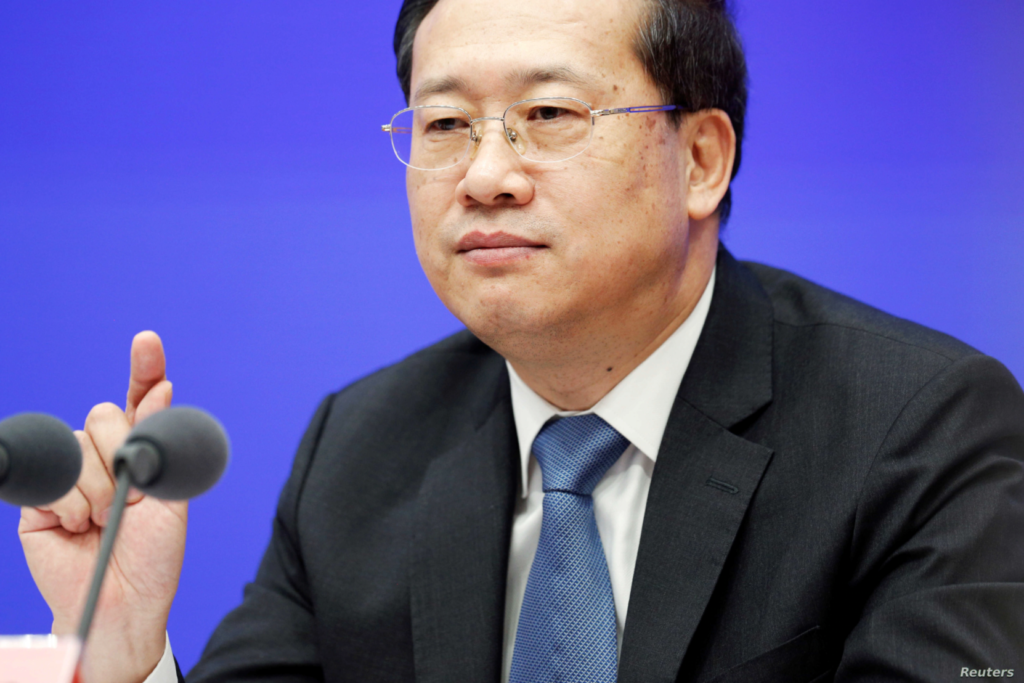Since the beginning of the year, Kyrgyzstan has faced a severe budget deficit. Incompetent management by the Jeenbekov administration led to loan and grant funds being spent on obscure state purchases and wage arrears, without stabilizing the budget.
In spite of manipulations with tax “collection rates,” an increasing number of entrepreneurs and businesses are unwilling to pay taxes amid the ongoing tax terror waged by Jeenbekov officials. It is evident that a serious budget crisis has taken hold in Kyrgyzstan.
In December, our country is due to make the next payment on loans provided by the People’s Republic of China. As far as we know, the budgeted funds are insufficient.
Recognizing the issue, our officials negotiated with China to request a deferment on payments. On September 14, the former Kyrgyz Minister of Foreign Affairs, Chyngyz Aidarbekov, discussed this with his Chinese counterpart. No consent for restructuring or deferment was granted.
Note from Ekonomika:
By the end of July, Kyrgyzstan’s external public debt amounted to $4.169 billion, with $112.9 million allocated for servicing it since January. Obligations to China account for $1.8 billion.
Public response
The reaction from politicians, activists, and social media has been marked by panic. «What will we give?» and «China will take our resources» are common sentiments.
On October 19, Ainuru Altybayeva, a deputy of the Jogorku Kenesh, went so far as to propose a public fundraiser to pay off Chinese debts. She mentioned that she is currently working on opening an account and starting a collection, where people can deposit money or even transfer gold or silver through Kyrgyzaltyn.
The legal aspect
While international financial obligations generally must be met according to their terms, if Kyrgyzstan unilaterally postpones fulfilment, it will be challenging to force compliance with the original schedule.
The Kyrgyz Republic is a sovereign state, as is the People’s Republic of China. Formally, they are equals in their relationship.
Kyrgyzstan cannot be compelled to transfer strategic assets to China, as there are no international mechanisms for this. In any case, it can only happen with Kyrgyzstan’s consent. Therefore, the media’s exaggerated threats of losing strategic deposits or even territory due to loan defaults should be dismissed as unprofessional fear-mongering. It is more likely that this is propaganda influenced by pro-Chinese interests to pressure the Kyrgyz government.
In the event of a default on international debt obligations, creditors typically seek the debtor state’s foreign assets to foreclose on them through legal proceedings.
However, this is not a threat to us: as numerous arbitration awards lost but unsatisfied by Kyrgyzstan have demonstrated, our country lacks international assets that could be subject to foreclosure.
The state-owned stake in Centerra (over 26%) was registered not with the State Property Fund but with Kyrgyzaltyn OJSC. In July 2016, a Canadian court ruled that these shares cannot be foreclosed on to cover the debts of the Kyrgyz government. The ruling was made in the court of appeal in a joint lawsuit filed by Turkish companies Turkish Sistem Muhendislik, Entes Industrial Plants Construction & Erection, Canadian company Stans Energy, and Latvian businessman Valery Belokon, a shareholder of the nationalized Manas Bank. Consequently, the loss of Centerra shares due to Chinese loans is not a threat to us.
Generally, the assets of the National Bank (gold and foreign exchange reserves) do not belong to the state’s assets: the National Bank is considered a legal entity separate from the state. Thus, this international asset of our country is also protected from foreclosure risks.
Kyrgyzstan, therefore, has a relatively strong negotiating position. If our negotiators firmly, but respectfully, inform the creditor that current obligations will be unilaterally deferred, it would technically constitute a «default,» but in practical terms, there would be no significant consequences.
Political background
There are reasons to believe that the recent hysteria surrounding the next payment on Chinese loans was instigated by pro-Chinese interests.
They aim to pressure our government into transferring the Kyrgyz stake in Centerra or other strategic assets to China. Of course, we cannot be certain of the exact hidden agendas.
Simultaneously, public opinion is being primed for this eventuality through journalists, deputies, and influential network figures.
Another possibility is that Kyrgyz officials from the previous government began stirring up fear to prepare public opinion for a strategic deal with China. The narrative they present is that by conceding specific assets, we are getting off relatively easy, while still maintaining the loan schedule.
Precedents in other countries
The extreme inflexibility of Chinese debt restructuring negotiators this year is far from the norm. It is more of an exception to the rule.
This situation suggests that the Jeenbekov government may have been discussing behind-the-scenes conditions for transferring assets to China. Outwardly, this appeared as a failure of the postponement talks. Fortunately, these negotiators are now preoccupied with their own issues, not Chinese loans.
In early June 2020, Chinese Vice Foreign Minister Ma Zhaoxu informed reporters in Beijing that China was implementing a debt moratorium for 77 developing countries and regions. This action is part of a broader G20 initiative to alleviate the debt burden on developing nations.
While commentators emphasized that China took this step to gain political «points» in the international arena amid confrontation with the Trump administration, the key point is that China announced the temporary suspension of debt repayments from 77 countries around the same time negotiations began on Kyrgyz debts.
Yet, Kyrgyzstan is expected to make full payments. Something is amiss here.
As the coronavirus pandemic continues, loans worldwide are being restructured, both public and corporate. This is the new normal. Inflexibility and strict requirements are the exceptions, not the rule. This fact should be remembered.
Loans from Chinese banks can also be restructured
Approximately 98% of Chinese international loans are issued with interest. The majority of such loans are funneled through Chinese state-owned banks.
These banks partly raise funds for lending by issuing bonds in the domestic market.
If a debtor defaults on a loan and the bank lacks sufficient resources, they seek government assistance to repay bondholders.
Consequently, banks rarely express willingness to write off all or part of a loan—they simply don’t have the balance sheet. However, loan restructuring without loss of interest is still possible. It may create a temporary cash gap for an individual loan, but given the multibillion-dollar size of Chinese banks» total loan portfolios, it won’t cause significant losses or force them to seek state bailouts.
What to do?
We believe that the new Minister of Foreign Affairs, Ruslan Kazakbaev, must obtain the consent of the Prime Minister—acting President Sadyr Japarov—to establish a clear negotiating position on Chinese debts.
The position is to request that the respected Chinese side implement a debt repayment moratorium, similar to the one granted to 77 other countries, until Kyrgyzstan overcomes the transitional period and the consequences of the pandemic.
Otherwise, Kyrgyzstan will unilaterally announce a moratorium on payments and declare to the world that the Chinese government is demonstrating extreme inflexibility toward a developing country facing hardship.
Regarding domestic economic policy, funding urgent winter expenses and social spending should be the top priority. This is also a matter of political survival for the current government: while people may protest against dishonest elections and regionalism, the primary driving force behind these protests is the economic factor.
Corruption factor
Alongside negotiations for loan deferrals, the Kyrgyz side should initiate internal investigations into corruption schemes surrounding Chinese loans.
At the very least, it should be formally established that a significant number of contractors, imposed by China, performed work at inflated rates compared to market prices. In the «CHP Case,» instead of fabricating accusations against political opponents, it would have been more appropriate to determine that the Chinese side had imposed an unfavourable offer on our country.
Legally, converting this information into credit against credit claims won’t be easy, but establishing the facts is crucial. This information may prove useful on an international level in the future.
The path ahead
A moratorium on loan obligations will not address the systemic issue plaguing the Kyrgyz economy: the lack of internal sources for sustainable, socially-oriented development amid international capital’s distrust of the country.
The authorities, established after the upcoming parliamentary and presidential elections, will face the difficult task of rebuilding foreign investors» trust. The first step should be to restore the rights of foreign investors who lost assets due to raids by corrupt security officials and bandits under the previous government. Following that, systemic reforms must be implemented. Without these measures, international capital’s confidence in our country will remain critically low.
Nazira Dzhuman





